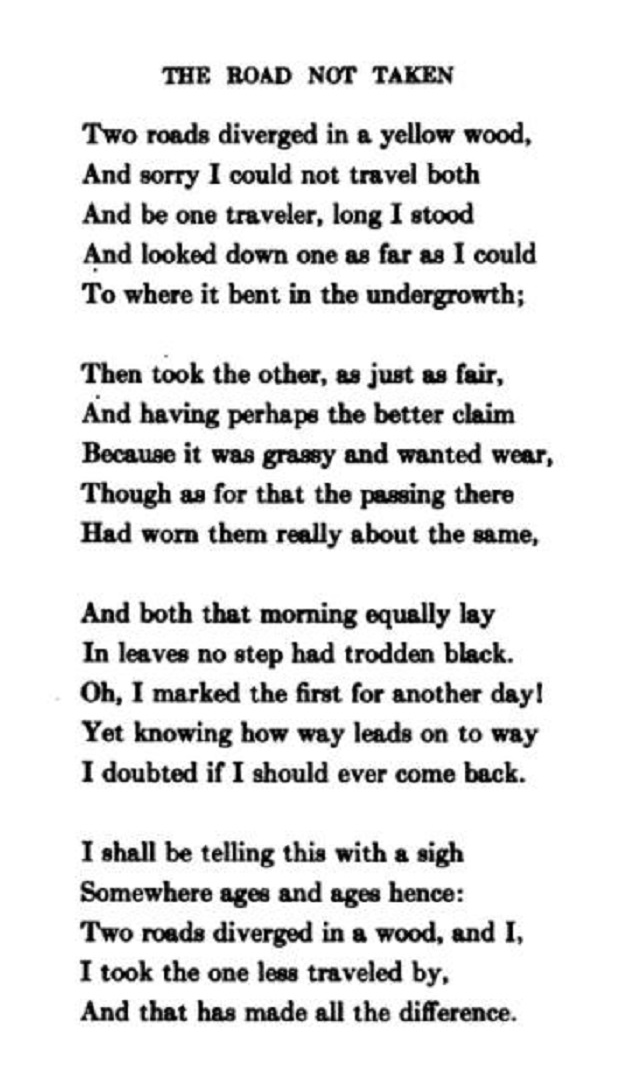Back in 2014, I was invited back to my graduate school as part of a professional development series for science grad students. Most of the speakers before me were from industry or academia, showing the students the traditional path forward. I was the odd one, brought in specifically to talk about ‘making the jump’ out of the traditional path (the talk was titled “When Opportunity Knocks…Navigating Job Transitions”).
Frost on the path
One poem that is often quoted regarding decision folks make is “The Road Not Taken”, by Robert Frost. Everyone I hear quote that poem quote the last three lines, puffed up and proud of their decision:
Two roads diverged in a wood, and I,
I took the one less traveled by,
And that has made all the difference.
What folks usually don’t know is that’s a misrepresentation of the whole poem. Indeed, Frost’s narrator points out that BOTH paths were identical and they just happened to choose one and knew they’d build a narrative that they took the more significant one.
Wikipedia has a nice summary of all of this, and the origins of the poem inspired by a friend of Frost. Do read it.
Forks on the path
As I alluded to in the opening, my path has not been seemingly linear. I have made interesting jumps in my career and life, with a long list of interesting binary decisions along the way. And at each juncture, while perhaps not equally unworn, a different decision would have led to radically different futures for me.
I don’t normally regret my decisions, as I know that I have no idea what life would be like if I had taken that ‘other’ decision at the time. While I am not nihilist, I’m not fatalist, either – we make the decision, best we can, and then live with it. I won’t waste time wondering if I would have been better with the ‘other’ decision.
Narrative on the path
At my talk with the grad students, one of the first things I dispelled was that there was any formula for making the jump to new job outside the traditional path. And I make it clear to them that they won’t know, when faced with a binary decision, if they are making the right decision. Not to mention that usually, time and information do not cooperate and you have to make as best a decision as you can at that moment and with what you have and know. Not ideal. Ever. Change and uncertainty are part of any life path, so make a decision and run with it and be ready to accept, resolve, or tolerate issues on the path you chose.
Also, the path forward doesn’t need to make sense to anyone but you. The one constant in that path is YOU. If you are true to what interests you, what you thrive doing, what you enjoy, then that’s the path you choose and those things will guide you in your decisions and be the common thread in your path – the narrative you walk.
The narrator of the Frost poem sorta knows that ‘the one less travelled’ is a narrative they prefer – the narrative keeps them from wondering if they made the right choice, what life would have been like on that other path, and to quell their FOMO.
So, in a way, when folks say ‘the one less travelled’, in a way, they got it right, even if they got it wrong.
Image from Wikipedia
